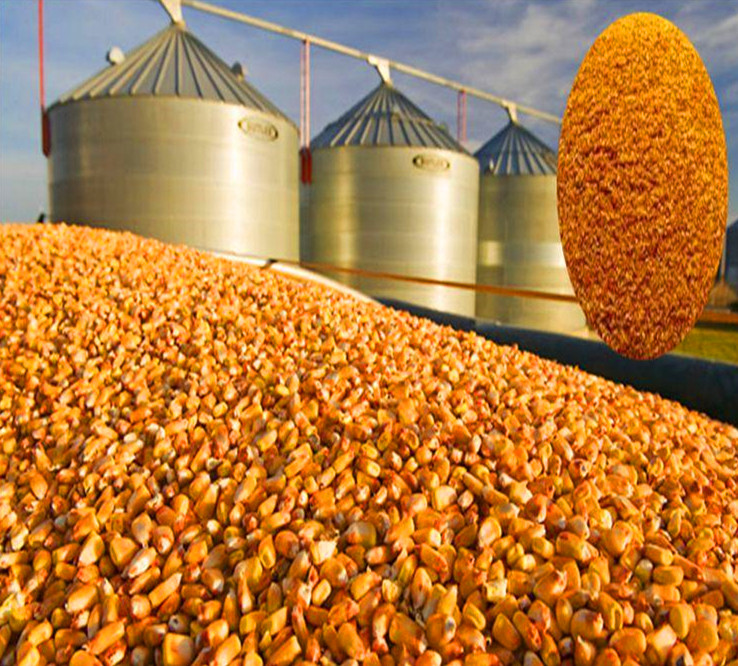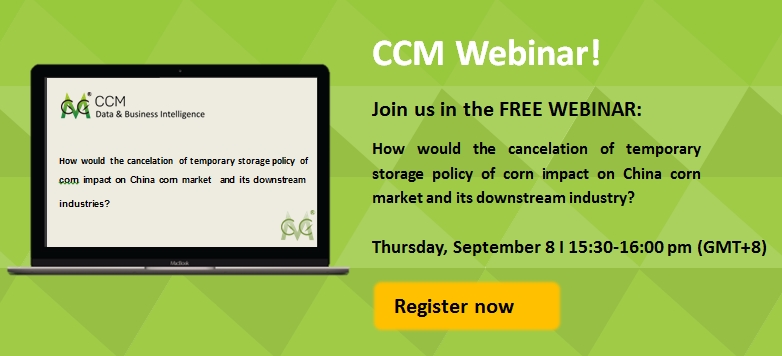
Source: Baidu
"Double anti-investigation" Restart
As early as Dec. 2010, China had once launched "double anti-investigation" (anti-dumping and anti-subsidy investigations) into American DDGS. But due to some constraints, the investigation was terminated in June 2012. And there was no clear conclusion about whether American DDGS are dumped into the Chinese market.
This year, China had launched another "double anti-investigation" into American DDGS (HS code: 23033000). On 12 Jan., 2016, the MOC officially announced the "double anti-investigation" on it. The industrial injury investigation period lasted from 1 Jan., 2012 to 30 Sept., 2015 and the dumping and subsidy investigation period was from 1 Oct., 2014 to 30 Sept., 2015.
Generally speaking, import volume of DDGS will substantially decline during the investigation period, just like the case in 2011. In Jan.-May 2016, merely 1.30 million tonnes of DDGS were imported into China, down by 11.97% YoY, according to China Customs. If the anti-dumping action is launched and anti-dumping duty is levied, its import volume will further decline.
China's import volume of DDGS, Jan. 2012-June 2016
Source: China Customs
Counterattack of China’s DDGS
Chinese DDGS market has been long dominated by imported DDGS, due to its high quality and not high price. In 2015, a 70%+ market share was occupied by imported DDGS. Specifically, the US is the major import origin.
Compared to domestic ones, American DDGS has richer fat and less mycete: 10% of fat on average, vs. 4-10% in domestic ones (percentage varies between different manufacturers), according to CCM's research. What’s more, the level of aflatoxin in China’s DDGS has long been a main restriction for its promotion. With higher quality under similar price, imported DDGS is more popular in China, especially in feed industry.
According to CCM's price monitoring, as of August, the ex-work price of domestic DDGS (24% protein, 10% fat) is at about USD271 .59/t while the price of imported DDGS (26% protein, 1 0% fat) at around USD301 .76/t (RMB2,000/t). If China officially launches anti-dumping actions on imported DDGS, domestic DDGS is very likely to take over the market.
Severe threat from corn
Apart from China’s DDGS, other substitutes like corn also will make a threat to the imported DDGS.
Around last August, the news about the cancellation of the policy of temporary purchase and storage of corn in China was inundated with market. This April, China officially cancelled this eight-year-old policy in order to ease the enormous stock of 250 million tonnes of corn. Subsequently, the price of corn dropped quickly. Take the FOB corn price in Dalian port as example, its price fell from USD405/t in June 2015 to USD300/t recently.
Since corn is an important feed ingredient, the large fall of its price challenges a lot on other feed substitutes. At present, China’s main imported feed ingredients (the substitute of corn) include DDGS, Sorghum and Barley. According to the data in H1 2016, the import volume of them experienced a drastic fall compared with that in H1 2015.
China's import volume of DDGS, Sorghum and Barley in H1 2015 and H1 2016
Source: China Customs
What’s more, CCM thinks that the price of corn is supposed to drop further thanks to more stock corn being auctioned and the supply of new corn, thus making bigger impact on other import feed ingredients, including import DDGS.
More related information in CCM’s Online Platform
About CCM:
CCM is the leading market intelligence provider for China’s agriculture, chemicals, food & ingredients and life science markets. Founded in 2001, CCM offers a range of data and content solutions, from price and trade data to industry newsletters and customized market research reports. Our clients include Monsanto, DuPont, Shell, Bayer, and Syngenta. CCM is a brand of Kcomber Inc.
For more information about CCM, please visit www.cnchemicals.com or get in touch with us directly by emailing econtact@cnchemicals.com or calling +86-20-37616606.
-
Average:
-
Reads(2230)
-
Permalink


 Back to Cnchemicals.com
Back to Cnchemicals.com 

